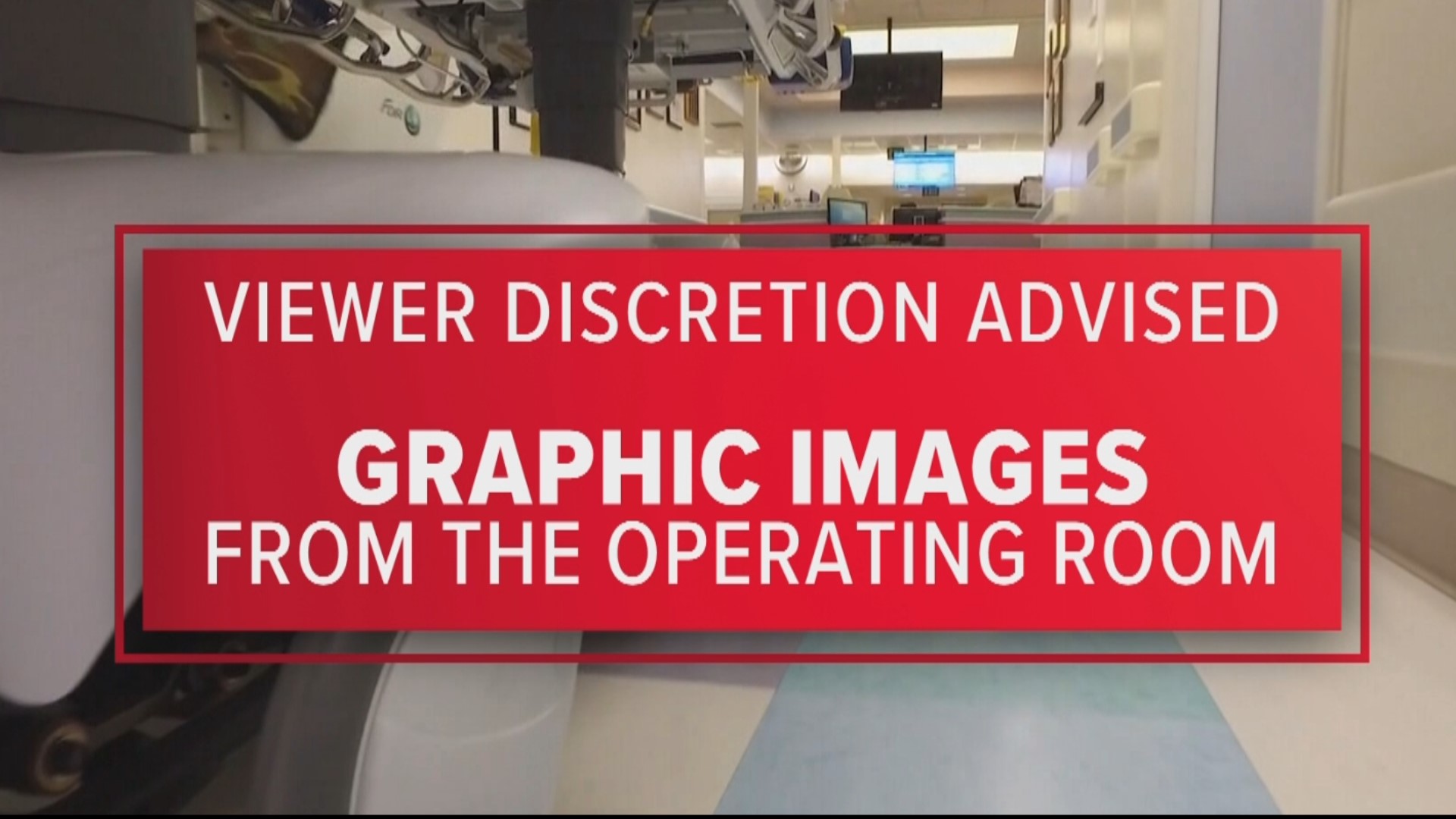JACKSONVILLE, Fla. — Warning: some of the images in this video are graphic and come from inside of an operating room.
This is a story that you have to see to believe... and even after you seeing it, you still might not think it's possible.
This is straight out of a horror movie. Last Friday a man had 150 live bugs pulled out of the inside of his nose. And as unbelievable as this sounds, it also comes as a warning for people who have compromised immune systems.
"Over a couple hours my face just started swelling, my lips swelled, I could hardly talk," said the patient, who First Coast News is not identifying, "my whole face felt like it was on fire."
The patient said he began feeling "off" in October of 2023. He said that he had neuroblastoma 30 years ago, which resulted in the removal of a cancerous tumor in his nose and left him with an extremely compromised immune system.
While he said he was feeling symptoms since last fall, it wasn't until last week that over the course of a few hours his face became extremely swollen.
"I started getting nose bleeds, constant nose bleeds," said the patient, "I couldn't even get up to go to the bathroom without my nose starting to bleed."
That's when he went to HCA Florida Memorial Hospital in Jacksonville, FL.
"When I went for the examination the doctor says, 'I see movement'," said the patient.
Dr. David Carlson was the ENT on-call that night.
"Thankfully he prompted me to take a closer look at the nose bleed, so we took a camera and looked in the nose and that's when things dramatically changed," said Dr. Carlson.
The images that the camera showed baffled the doctor; dozens and dozens of bugs, alive and feeding on the inside of the patient's nose and sinus cavity.
"When they feed they also create excrement," said Dr. Carlson, "larvae shed tissue and excrement and that creates a toxic environment that creates the inflammation because there was significant abnormality in that nose."
These were not microscopic bugs.
"Size wise there's variations, but the larger ones were as big as the end of my pinky," said Dr. Carlson, "I knew he was in big trouble, there was erosion that was occurring near the skull base in very close proximity to his eye and his brain."
"There were certain larvae inside the nose that were scurrying around and looking for places to feed and others that had burrowed into tissue," said Dr. Carlson, who immediately tried to remove the bugs when he learned what the situation was.
"We tried to remove them with suction but it clogged the suction," said Dr. Carlson, "they were large enough that I couldn't get them with the suction, we ended up having to remove them one by one using different instrumentation."
"And it hurt because they weren't coming willingly either," said the patient.
150 bugs in the larva stage were pulled out of the patient's nose and have been sent off to an epidemiologist to determine what type of bugs they are.
"They were right up against his skull base, right under the brain, had they gone through that it could have killed him," said Dr. Carlson.
The patient said that he doesn't know how they got inside his nose, but said that it's possible he wasn't as diligent as he should have been when it comes to washing his hands after handling dead fish.
This case is extremely rare; it's called Nasal Myiasis and Dr. Carlson said that in his nearly 20 years as an ENT he's never seen anything like this even documented in the United States. Dr. Carlson doesn't want to cause widespread panic and said that the vast majority of humans have an immune system that is strong enough to kill most parasites when they try to enter the body, but he does caution people with compromised immune systems.
"The intent is not to create hysteria with viewers, but anyone who has an immune system that's compromised or less than optimal could be at risk for abnormal infections," said Dr. Carlson, "If you're going to be around a dirty environment, those hands need to be washed."
The patient said that he enjoys fishing and will continue to fish, but just with more health measures in place.
"I know that I have to change my lifestyle as far as I handle fish," said the patient, "before I would rinse my hands in the river, now I'll use cleaner to do a better job and not touch my nose or my hand."
The patient was given an anti-parasitic as well as a special anti-parasitic rinse to clean his nose and will be evaluated 3 to 4 times a year but is expected to make a full recovery. Dr. Carlson believes the neuroblastoma from 30 years prior to the incident caused open spaces in the patient's sinus cavity and combined with his severely weakened immune system created an environment suitable for parasites to grow when not treated.

